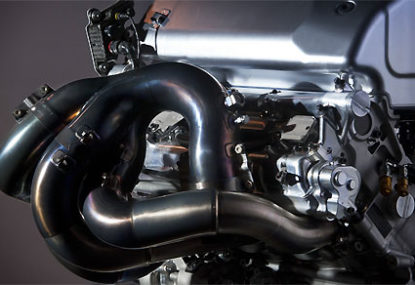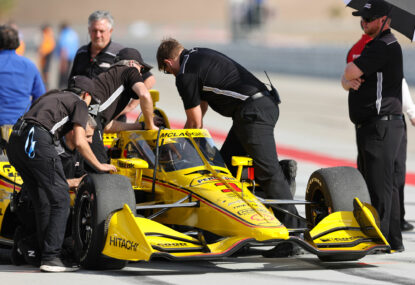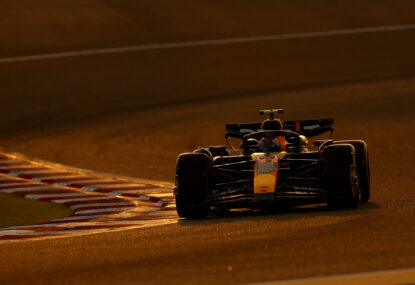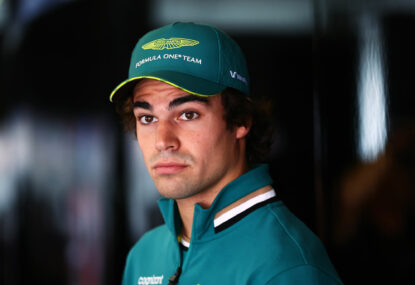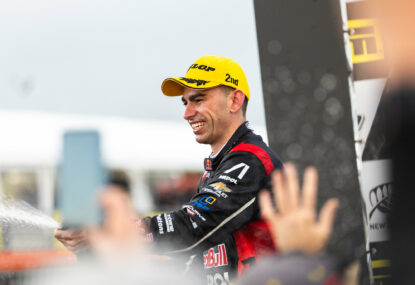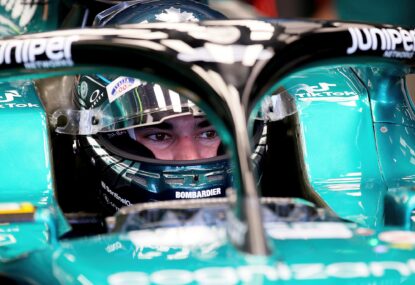Formula One in the desert. I can see why Bernie was so keen to have a race in the Middle East – there’s something exotic about these arid lands.
It’s an area totally unlike anything in Europe, yet it’s of such immense wealth that the luxuries of home are replicated almost exactly. The F1 brand is a definite match for the new glitz and glamour of Arabia.
Abu Dhabi maximises the effect to the benefit of both itself and Formula One. It’s been called the Monaco of the Middle East, and not without warrant. It’s everything Bernie could have wanted for his sport.
But then, on the other hand, we have Bahrain. The tiny island Kingdom proudly carries its title as the first Middle Eastern country to host a Grand Prix, and continues to boast the benefits reaped by promoting itself to the world.
That much is certainly fact – I imagine very few people even knew what Bahrain was before Formula One set up its big top in Sakhir in 2004.
But that’s just about where the positives end.
It’s now the week after the 2013 Bahrain Grand Prix, and it’s the second year in a row in which the race has been tainted by the persistent question of whether Formula One should be there at all. The race was, of course, cancelled in 2011 after the violent uprising spurred by the Arab Spring.
Last year it returned, but only hesitantly, ambivalently, and questioning the value of its intrusion on a country with its own very real problems.
This year it re-entered the Bahraini border a little more confidently, but always with that question hanging over its head: do we really need to be here?
First, a few things need establishing. Our idea of Bahrain – still in that early state of vicious uprising and government crackdowns on protesting – is false. The situation is significantly more sedate at present.
While protests are still a near-daily occurrence, the events that caused the 2011 cancellation have not persisted.
Moreover, Bahrain is not a crumbling nation being ruled by some despot focussed only inwards at the expense of the citizens.
Bahrain, to be truthful, is a liberal state relative to much of the Middle East. And it continues to progress – but clearly in a way that does not appease the opposition.
So, Bahrain is perhaps not as bad a place as we’ve been making out. There are still significant problems, to be sure – but it’s safe enough for Formula One to visit.
And, of course, there’s the old argument that if transparency on human rights is qualification for a Grand Prix, similar questions ought to be asked of China. Or if danger to team personnel is the first priority, the Brazilian Grand Prix should be suspended indefinitely.
So with all that considered, should we now take it for granted that Formula One and Bahrain ought to have a bright and rosy future together? No, certainly not.
Bahrain has an image problem more dire than any other country on the calendar. We think fondly of Brazil because of its history in the sport, and we consider China a new rising world centre, so its presence on the calendar is only logical.
But Bahrain? What value does this association provide?
The image problem exists beyond motorsport. The world – thanks to, ironically, Formula One – now identifies Bahrain by its protests.
Whether rightly or wrongly, the country is now characterised by its infighting – infighting which is occasionally punctured by a seemingly oblivious group of motor racing enthusiasts who interrupt for a week and leave just as quickly.
Whether this perception is accurate is beside the point – Formula One is a brand, and trades on perception. Bahrain isn’t a good look.
On the other hand Bernie Ecclestone and Jean Todt believe this race could be a force for good – not only by unifying the country, but by portraying a truer image to the world. The act may be borne of noble intention, perhaps, but it runs a significant risk of contravening article one of the FIA statues – which, in sum, dictates that sport must remain apolitical.
This, really, is the crux of the issue. Formula One is a sport. It is a sport with enormous global reach and influence, but a sport nonetheless. To use its size to influence politics outside the realm of motorsport is to become corrupt, no matter the intention.
I believe Bahrain is safe enough to race. I even believe there’s real support for the race’s continuation. But Formula One must not compromise its fundamental values and involve itself in Bahraini politics – and to race in Bahrain is to do exactly that.
You can follow me on Twitter, but I mostly re-tweet puns: @MichaelLamonato





























































































